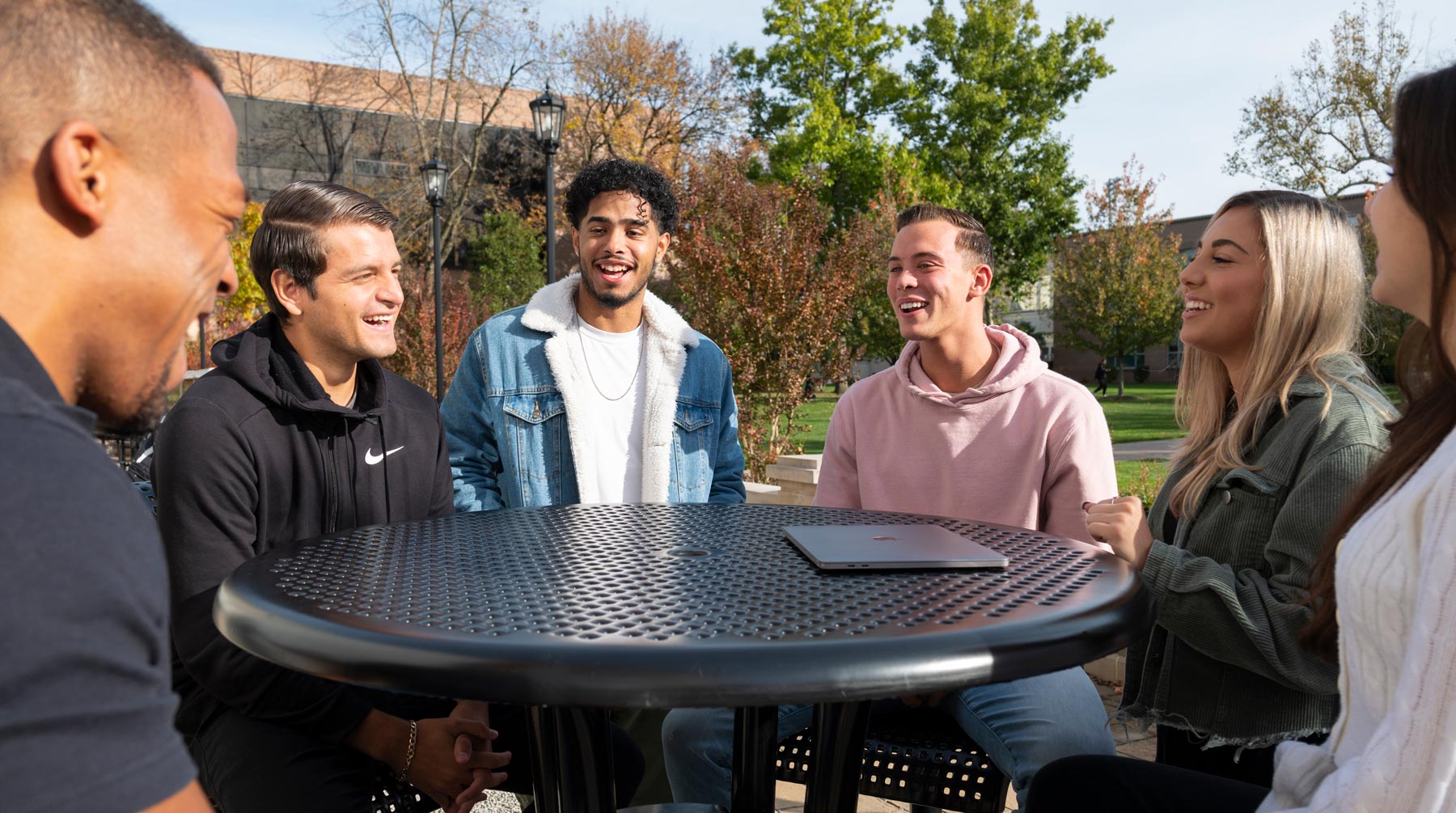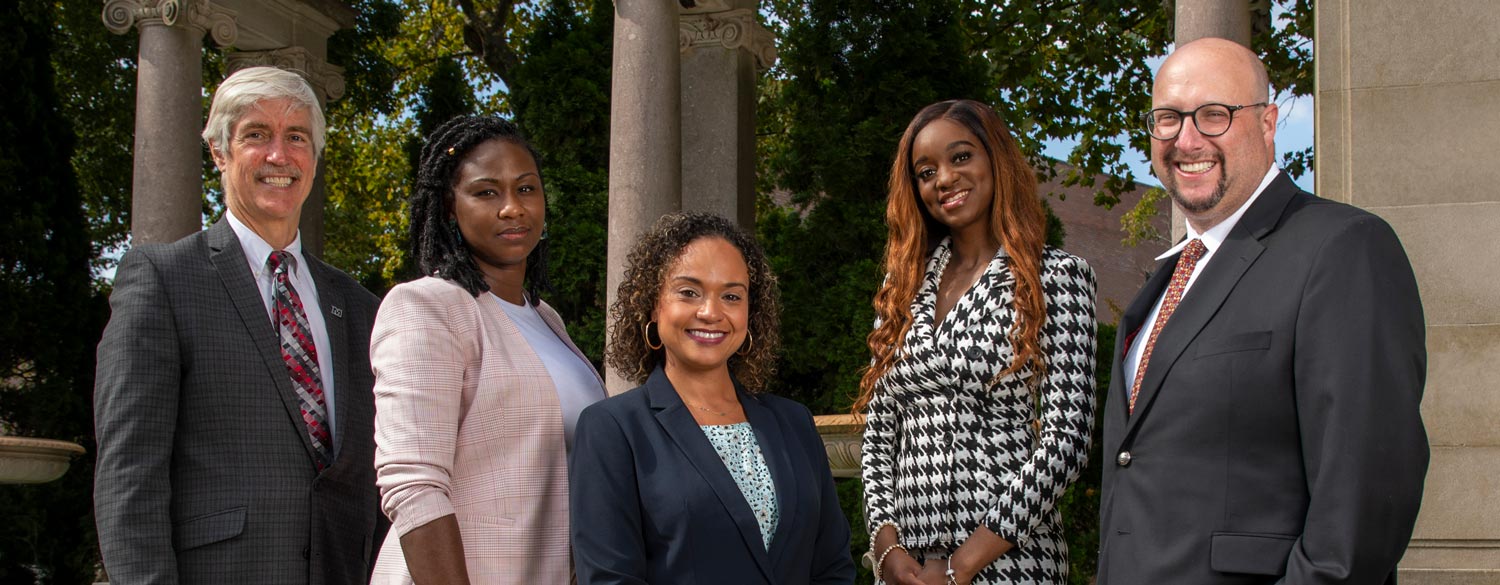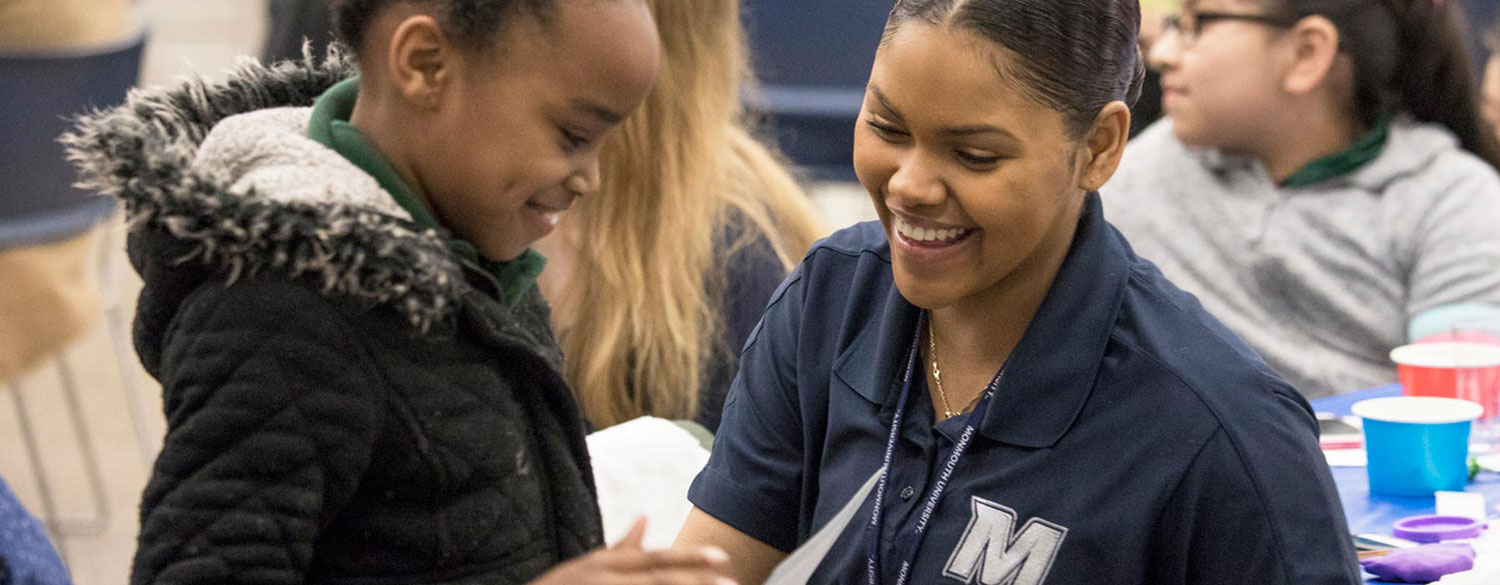
Theme 3
Cultivate a Diverse & Inclusive Campus Community
Monmouth University works to create an environment of equity and inclusion which respects and affirms the inherent dignity, value, and uniqueness of all individuals, communities, and life experiences. Our practices reflect awareness and understanding of the complexity of identity and the increasing interconnectedness of our world. It is our responsibility to promote and maintain a community of compassion, embracing the rich dimensions of diversity, and facilitating opportunities for understanding and the expression of both individual and shared experiences.
Recruit and retain a domestic student body that more closely reflects the changing racial, economic, and linguistic demographics in our recruiting market with a goal to increase our enrollment of both Pell-eligible students and students of color, and to enhance the experience of this increasingly diverse student body.
- Reassess the balance of need- and merit-based financial aid.
- Expand the capacity and incentive for community facing pipeline programs (e.g., Monmouth Future Scholars Program, Empowering Young Black Males Leadership Mentoring Program, Project BAM) in order to develop academic and financial pathways to the University for local K-12 students.
- Create additional reporting options for incidences of bias, discrimination, and harassment, and increase capacity for investigation, response, accountability, and intervention.
- Expand and enhance the physical space for the Intercultural Center, while assessing the strategic opportunity to include additional offices (e.g., Educational Opportunity Fund (EOF), First to Fly).
Increase employee race-based diversity for new faculty and staff hires, as well as build organizational structures to support them, in order to double our current employee racial diversity (approximately 10%) by the end of this plan, to ensure that our faculty and staff increasingly represent our student body.
- Create more equitable, intentional, and standardized hiring practices for all academic and non-academic hiring processes (e.g., cohort building, cluster hiring).
- Explore post-doctoral fellowship programs with a focus on recruiting and mentoring the next generation of diverse and interdisciplinary scholars.
- Assess campus climate on a regular (three-year) basis which employs an inclusive cycle of assessment encompassing community input, sharing of the results, and data-informed interventions.
- Develop an identity-reflective and cross-departmental mentoring program for historically underrepresented faculty and staff members.
Develop practices to improve the employee experience and enhance employee satisfaction.
- Strengthen the employee experience from onboarding through retirement including, but not limited to new and transitioning (promotion) employee trainings, continued professional development for budgeting, management, supervision, and inclusive leadership.
- Develop an integrated wellness program for all employees to include time off, mental and physical health services, nutrition, and religious and cultural needs.
- Conduct a feasibility study for an on-campus childcare program.
- Continue to work with the Faculty Council and Staff Council on developing initiatives that meet the needs of our campus employees.

